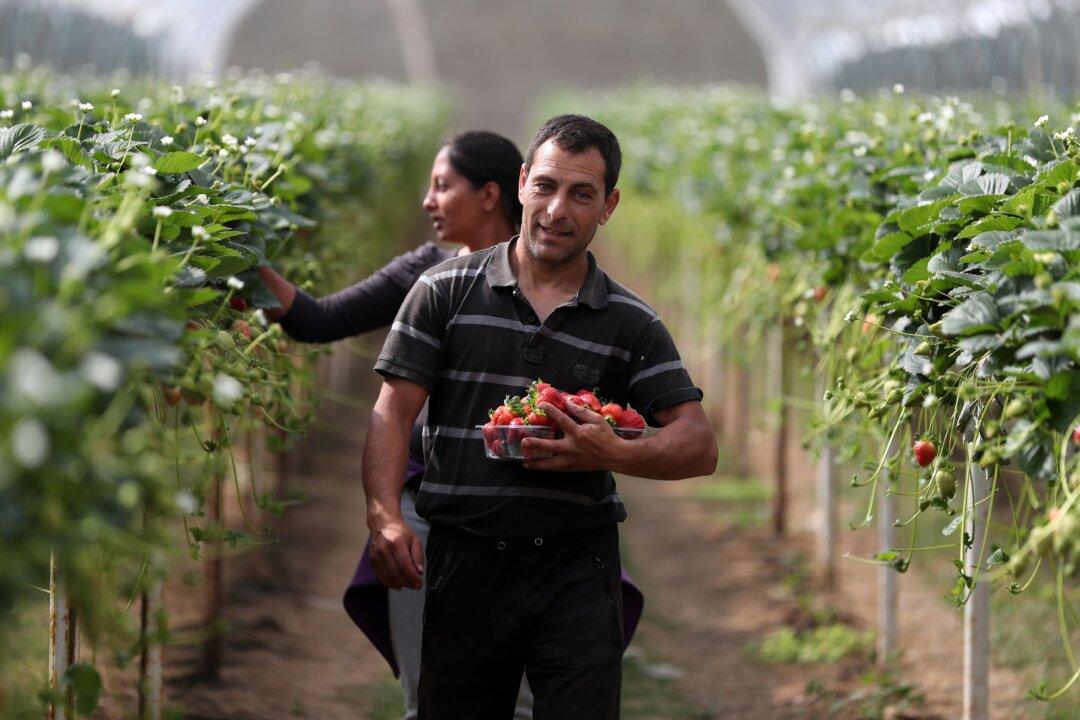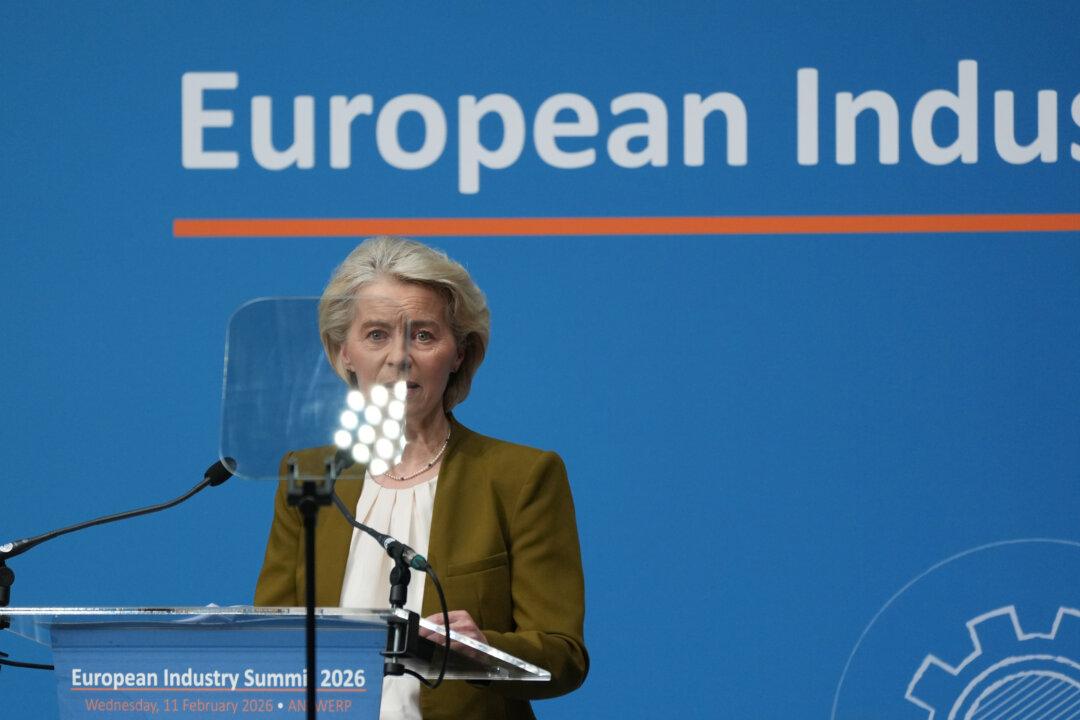British Farmers are dealing with a perfect storm of historic high prices of fuel and fertiliser leading to fears of increased food prices and potential shortages.
Potato farmer and independent agronomist from Lincolnshire, Mike Neaverson told The Epoch Times by email that he was covered for fertiliser this season “but many are not.”





